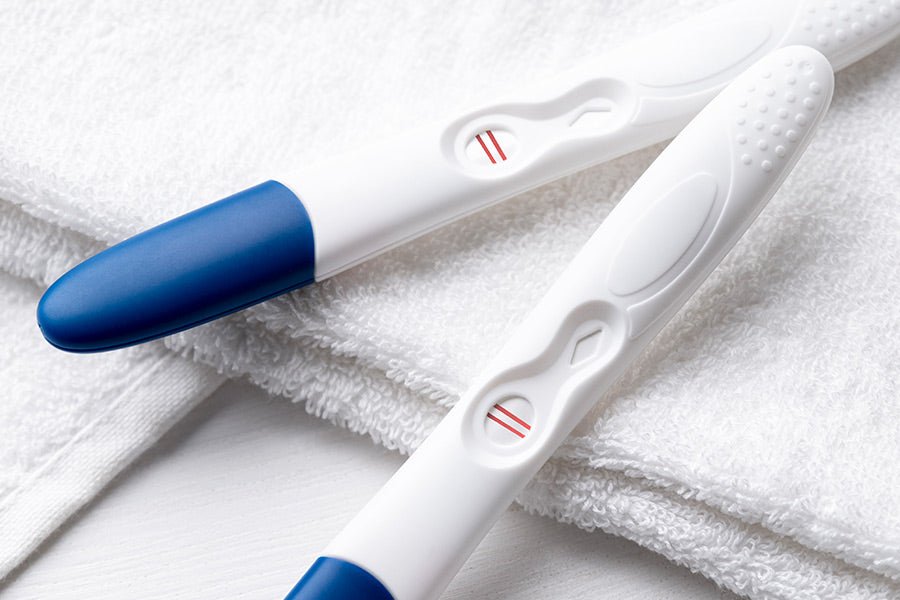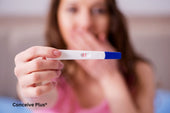How a Woman Gets Pregnant by a Man and Why Do Women Get Pregnant Naturally

Pregnancy is a beautiful process, but also a pretty complicated one when you start to really think about it. It’s not just about the act of intercourse—it involves timing, health, and the right conditions for everything to fall into place. Understanding how a woman gets pregnant by a man is super important for anyone trying to conceive. By learning the basics of conception, plus a little extra about how lifestyle and supplements can help, you can increase your chances of getting pregnant naturally.
This article will cover everything from how a man get a woman pregnant to how woman gets pregnant by man and the natural processes behind why do women get pregnant.
How Does Conception Actually Happen?
Conception is a process that starts with an egg and a sperm. It begins when a woman ovulates, which happens roughly 14 days before her next period is due. During ovulation, one of her ovaries releases a mature egg into the fallopian tube. This egg is viable for about 12 to 24 hours.
At the same time, if a man ejaculates during intercourse, millions of sperm cells are released into the woman’s body. These sperm swim through the cervix, into the uterus, and up the fallopian tubes in search of the egg. Only one sperm can actually fertilize the egg, and that marks the beginning of a pregnancy. Once fertilization happens, the egg becomes a zygote, which starts dividing into more and more cells as it moves towards the uterus. When the zygote reaches the uterus, it attaches itself to the uterine lining in a process called implantation. This step officially starts the pregnancy [1].
This step-by-step process explains how a man get a woman pregnant and why timing is so important.
What Role Do Sperm and Eggs Play?
The health of both the sperm and the egg is critical when it comes to conception. A man’s sperm needs to be strong, healthy, and mobile enough to swim through the woman’s reproductive system to reach the egg. For women, the quality of the egg is just as important—especially for successful fertilization and implantation.
Certain nutrients can support reproductive health in both men and women. For example, zinc and selenium are known to boost sperm quality and protect reproductive cells from oxidative damage. These nutrients act as antioxidants, which is important for keeping cells healthy and functional.
For women, folic acid and Myo-Inositol are two powerful nutrients that improve egg quality and help regulate hormones. Folic acid is especially important because it reduces the risk of birth defects and supports healthy cell growth. Myo-Inositol, on the other hand, is helpful for women with PCOS as it promotes regular ovulation [2].
If you’re wondering how woman gets pregnant by man or how do men get women pregnant, it’s all about the health and timing of these reproductive cells.
When Is the Best Time to Try for a Baby?
Timing is everything when it comes to conception. The best time to conceive is during what’s called the "fertile window," which includes the five days leading up to ovulation and the day of ovulation itself. Since sperm can survive in the female body for up to five days, having intercourse during this window greatly increases the chances of conception.
There are a few ways to figure out when you’re ovulating. One of the easiest methods is by tracking cervical mucus. During ovulation, cervical mucus becomes clear, stretchy, and slippery, like raw egg whites. This makes it easier for sperm to swim through. You can also track your basal body temperature (BBT) because it rises slightly after ovulation. Ovulation predictor kits are another great tool—they test for the luteinizing hormone (LH) surge that happens before ovulation [3].
Timing intercourse during this fertile period answers how man can get woman pregnant and ensures the sperm meets the egg at just the right time.
Lifestyle Choices That Affect Fertility
Your lifestyle can play a huge role in whether or not you can conceive. Smoking, drinking too much alcohol, and using drugs can all reduce fertility for both men and women. Poor diet, high stress levels, and lack of exercise also have a negative impact.
Maintaining a healthy weight is really important. Being either underweight or overweight can mess up hormonal balance, which can lead to irregular ovulation or poor sperm quality. A balanced diet full of whole foods, lean proteins, and healthy fats can make a big difference.
Certain nutrients, like Vitamin D, are essential for hormonal health. Omega-3 fatty acids (like DHA) improve egg quality and sperm motility. Iron supports oxygen transport in the blood, which is critical for both men and women [4]. By making these changes, you can increase your chances of understanding why do women get pregnant naturally.
How Supplements Can Help Fertility
If you’re trying to conceive, supplements can be a great way to support your body. Folic acid is one of the most important nutrients because it supports fetal development and reduces the risk of neural tube defects. Myo-Inositol and D-Chiro Inositol are great for women with PCOS, as they help balance hormones and regulate ovulation.
For men, CoQ10 and L-Carnitine are especially beneficial. CoQ10 improves sperm energy and motility, while L-Carnitine supports overall sperm function. Other nutrients like zinc, selenium, and magnesium are also important because they protect reproductive cells and enhance modern fertility [5].
Supplements with these ingredients help answer how a woman gets pregnant by a man by improving reproductive health on both sides.
Why Do Women Get Pregnant Naturally?
The female body is designed to conceive naturally under the right conditions. Every month, the reproductive system prepares for a potential pregnancy by releasing an egg, thickening the uterine lining, and producing cervical mucus to help sperm swim to the egg. These natural processes work together to create the ideal environment for conception.
Men’s bodies also contribute by producing millions of sperm that are ready to fertilize an egg. Understanding why do women get pregnant naturally highlights the importance of timing, health, and the body’s natural cycles [6].
Preparing for a Healthy Pregnancy
Preparing your body for pregnancy can make a big difference. Women should start by tracking their menstrual cycles to figure out when they’re ovulating. Keeping track of ovulation makes it easier to know the better age to get pregnant.
Taking prenatal vitamins is another important step. These vitamins often include folic acid, Vitamin D, and iron, which are all essential for a healthy pregnancy. Folic acid supports early fetal development, while Vitamin D and iron ensure your body is ready for the demands of pregnancy.
Men can also benefit from supplements that include zinc and selenium, which improve sperm health. Making lifestyle changes like quitting smoking, cutting back on alcohol, and exercising regularly can also help [7].
By taking these steps, couples can understand how do men get women pregnant while creating the best environment for a healthy pregnancy.
Common Myths About Getting Pregnant
There are a lot of misconceptions out there about conception. One of the biggest myths is that specific sexual positions can increase the chances of pregnancy. The truth is, as long as sperm is deposited near the cervix, the position doesn’t matter.
Another myth is that raising your legs after intercourse helps sperm reach the egg faster. In reality, sperm reach the cervix within seconds of ejaculation, so this isn’t necessary. Stress is often blamed for infertility, but while it can play a role, it’s not usually the sole reason for difficulty conceiving [8].
The Bottom Line
Understanding how a woman gets pregnant by a man involves learning about the timing, biology, and factors that influence conception. By improving your health, tracking ovulation, and using fertility-supporting supplements, you can increase your chances of conceiving naturally.
The journey to parenthood may require patience, but with the right preparation, it’s possible to create the conditions needed for a healthy pregnancy. Whether it’s through better lifestyle choices, tracking your cycle, or getting the right nutrients, small steps can make a big difference.
With the right information and preparation, you can improve your chances of achieving a healthy and successful pregnancy.
FAQs
How long does it take to get pregnant naturally?
For most couples, it can take up to a year of trying to conceive naturally. If it’s been longer, consider seeing a doctor.
What are the best supplements for fertility?
Supplements with folic acid, CoQ10, Vitamin D, and zinc are known to boost fertility.
How do I know when I’m ovulating?
You can track ovulation by monitoring cervical mucus, using an ovulation predictor kit, or tracking your basal body temperature.
Can stress prevent pregnancy?
Chronic stress can affect hormonal balance, but occasional stress is unlikely to completely prevent pregnancy.
How often should couples trying to conceive have sex?
Every 2–3 days during the menstrual cycle is recommended to increase the chances of conception.
Can irregular periods affect my chances of getting pregnant?
Yes, they can make predicting ovulation harder, but tools like ovulation kits can help. Consult a doctor if cycles are very irregular.
Citations
- Wilcox, A. J., Weinberg, C. R., & Baird, D. D. (1995). Timing of sexual intercourse in relation to ovulation. Effects on the probability of conception, survival of the pregnancy, and sex of the baby. The New England journal of medicine. Available at: https://pubmed.ncbi.nlm.nih.gov/7477165/
- Unfer, V., Carlomagno, G., Dante, G., & Facchinetti, F. (2012). Effects of myo-inositol in women with PCOS: a systematic review of randomized controlled trials. Gynecological endocrinology : the official journal of the International Society of Gynecological Endocrinology. Available at: https://pubmed.ncbi.nlm.nih.gov/22296306/
- Behre, H. M., Kuhlage, J., Gassner, C., Sonntag, B., Schem, C., Schneider, H. P., & Nieschlag, E. (2000). Prediction of ovulation by urinary hormone measurements with the home use ClearPlan Fertility Monitor: comparison with transvaginal ultrasound scans and serum hormone measurements. Human reproduction (Oxford, England). Available at: https://pubmed.ncbi.nlm.nih.gov/11098014/
- Ajepe, A. A., Okunade, K. S., Sekumade, A. I., Daramola, E. S., Beke, M. O., Ijasan, O., Olowoselu, O. F., & Afolabi, B. B. (2020). Prevalence and foetomaternal effects of iron deficiency anaemia among pregnant women in Lagos, Nigeria. PloS one. Available at: https://pubmed.ncbi.nlm.nih.gov/31971986/
- Showell, M. G., Mackenzie-Proctor, R., Brown, J., Yazdani, A., Stankiewicz, M. T., & Hart, R. J. (2014). Antioxidants for male subfertility. The Cochrane database of systematic reviews. Available at: https://pubmed.ncbi.nlm.nih.gov/25504418/
- Eisenberg M. L. (2022). The past, present, and future of the semen analysis. Fertility and sterility. Available at: https://pubmed.ncbi.nlm.nih.gov/34986983/
- Jensen, T. K., Gottschau, M., Madsen, J. O., Andersson, A. M., Lassen, T. H., Skakkebæk, N. E., Swan, S. H., Priskorn, L., Juul, A., & Jørgensen, N. (2014). Habitual alcohol consumption associated with reduced semen quality and changes in reproductive hormones; a cross-sectional study among 1221 young Danish men. BMJ open. Available at: https://pubmed.ncbi.nlm.nih.gov/25277121/
- Rooney, K. L., & Domar, A. D. (2018). The relationship between stress and infertility. Dialogues in clinical neuroscience. Available at: https://pmc.ncbi.nlm.nih.gov/articles/PMC6016043/



















